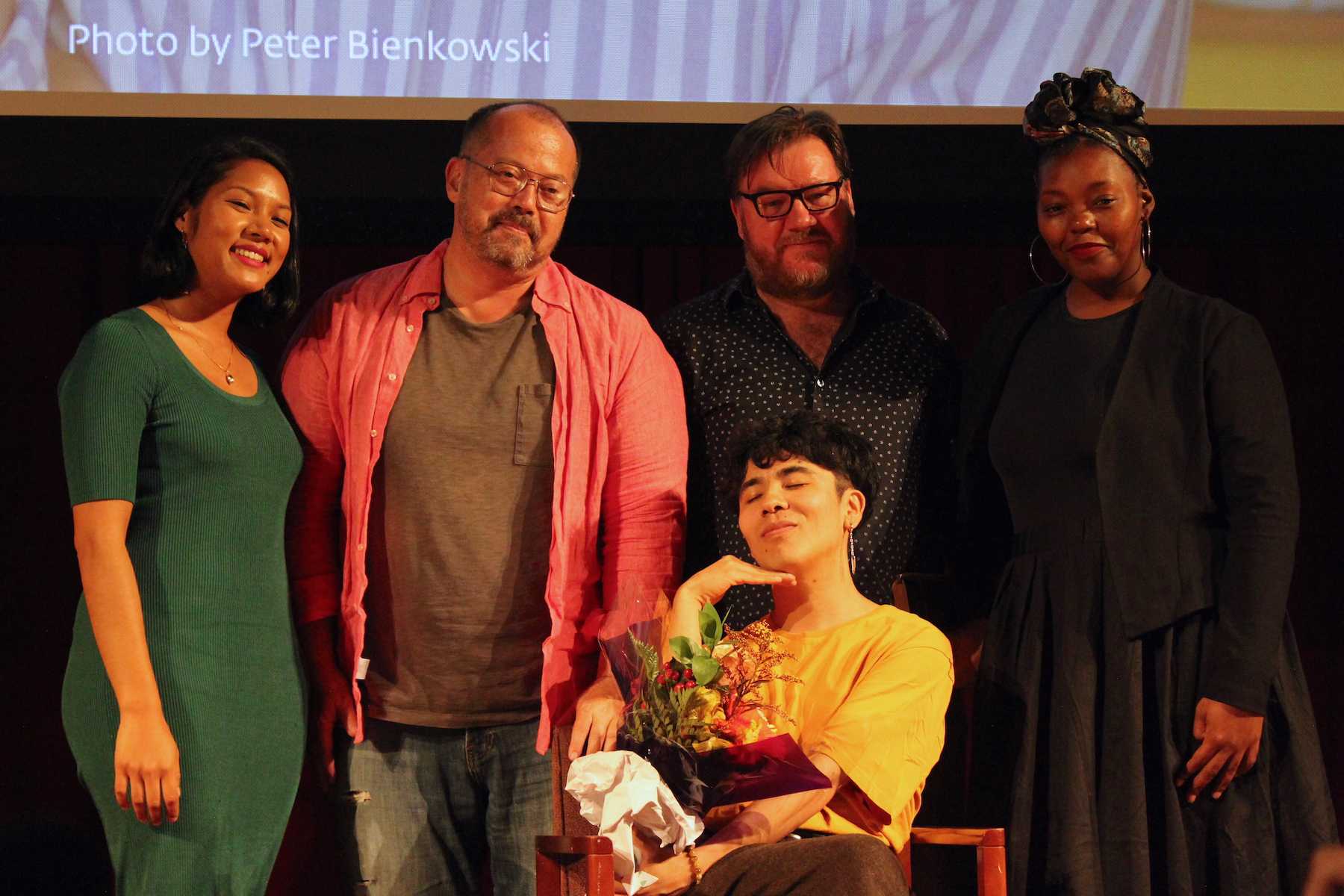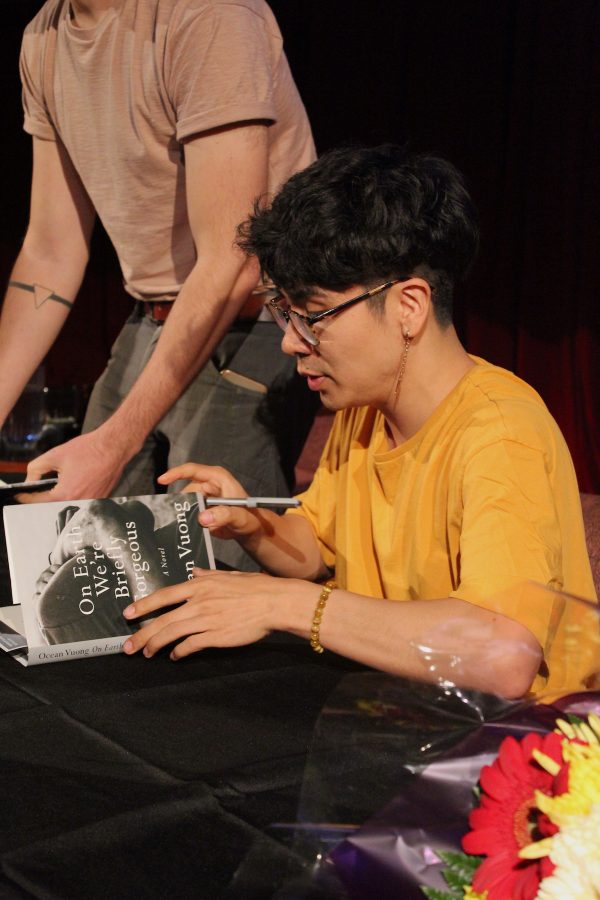Ocean Vuong entered Manhattan’s poetry scene in 2008 after dropping out of Pace University three weeks into his first semester and being ashamed to face his Asian American family, he told an audience at Kimmel Center for University Life’s Eisner and Lubin Auditorium during a panel on Wednesday.
Vuong frequented open mic nights at Bar 13 on University Place, trying to capture the attention of random customers. Eleven years later, Vuong received a 2019 MacArthur Genius Grant — a $625,000 award given to innovators who have demonstrated great potential in their fields.
The event was hosted by the Asian/Pacific/American Institute at NYU, where Vuong is the 2019-2020 Artist-in-Residence — someone who resides at university facilities to make art and host events. The panel discussed Vuong’s writing and cultural identity’s role in literature.
Joining Vuong on stage were writers Alexander Chee, fictional poet and essayist; Mahogany L. Browne, spoken word poet and author of “Black Girl Magic”; Monica Sok, Cambodian-American poet; and Sinan Antoon, Iraqi novelist. Vuong referred to these artists as close friends and said that his work and success would not be possible without them.
“No one celebrates themselves alone,” Vuong told the audience. “It’s never one person in the spotlight, even if you get an award.”
The event follows the publication of Vuong’s debut novel “On Earth We’re Briefly Gorgeous” last June. The novel is formatted as a letter from a man to his illiterate mother.
Vuong said his novel “fell apart” in the middle, where he wrote in poetry instead of classical prose. He read two poems from this section.
“A big question I like to ask is — what happens when the novel stops noveling?” Vuong said.

Vuong’s book centers around his tumultuous relationship with his Vietnamese heritage while growing up in the U.S., an element that audience members said deeply resonated with them.
“I’m Southeast Asian, so my parents were refugees,” said Mary Heu, a second-year graduate student at the Silver School of Social Work. “So his life story about his mother reflects a lot of similarities in my history.”
CAS sophomore Angela Cai said she appreciated how personal Vuong’s work felt, especially regarding his depiction of what it means to be Asian American.
Much of the conversation on lineage during the panel was on war and its aftermath –– the APA’s theme this year. This is an issue Vuong, who spent the first year of his life in a refugee camp in the Philippines, has dealt with firsthand. In “On Earth We’re Briefly Gorgeous,” Vuong recounts his mother’s Vietnam war flashbacks.
Vuong and his colleagues discussed not holding back in writing about war to provide a voice for victims that are often underrepresented in literature.
Facing adversity is something Vuong said is part of what it means to be an Asian American artist. He told Asian American artistic hopefuls in the audience not to give up.
“Be prepared to be unfathomable to the rest of the world,” Vuong said. “We need you, and we are ready for you.”
Email Lisa Cochran at [email protected]






















































































































































